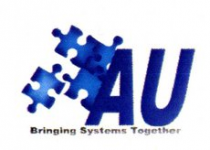The 2020 Grassroots Influence Pulse® Research Results: Social Media Posts, Email Campaigns are Ineffective in Changing Legislator's Minds
CINCINNATI, Jan. 14, 2020 /PRNewswire/ -- The third edition of a national biennial research study among professional grassroots advocacy leaders reveals that social media posts and email communications don't lead to legislative results, according to The Grassroots Influence Pulse® (GRIP) conducted by The Showalter Group, Inc.
The new restrictions on social media political ads, which includes sponsored ads on legislation, and evidence that more time spent on social media messages and online communications does not predict legislative victory presents a dilemma for professional grassroots leaders.
"While email is still the most frequently deployed advocacy tactic, it isn't associated with increased legislative victories. In fact, the statistics show that email negatively correlates with legislative success--the more time spent on it, the less successful an organization is," said Amy Showalter, one of the research authors. "We also found the more time an advocacy leader spends urging stakeholders to post social media messages, the less success they experience. It's critical for organizers to focus their time and energy on face to face meetings with lawmakers, conducting grassroots events, and facilitating member relationships with elected officials, which our research found does lead to legislative results, even if it's difficult and tedious."
The Grassroots Influence Pulse (GRIP®) conducted by The Showalter Group, Inc., surveys advocacy leaders about trends in grassroots influence tactics, how elected officials are (or are not) responding to their tactics, and analyze the results to determine those that predict legislative success. The survey is executed in cooperation with the Washington - D.C. based Grassroots Professionals Network, (GPN) www.grassrootspros.org and their over 5,000 members.
"The Grassroots Influence Pulse Survey is one of the best tools to gauge advocacy profession trends and provides a great roadmap for advocacy professionals to win the influence game both in D.C. and state legislatures," said Joe Franco, GPN's Chairman and Vice President of Grassroots at LeadingAge.
Which grassroots influence tactics and factors predict grassroots success?
-- Conducting more grassroots events
-- Investing in more face to face meetings with lawmakers in the district
-- The political party in power aligns with your issue position
-- A higher percent of stakeholders who have relationships with elected
officials
What doesn't predict legislative success? Spending more time on:
-- Social media messages
-- Email messages
-- Social media campaigns
-- Collecting more records in your database - quantity is not vital to
success
In other findings, 32% of the respondents said it was "easier" to recruit grassroots advocates. They cited "worthy opponents" as a key factor. Those facing recruiting challenges cite "advocate burn out" as the top reason for advocate fatigue.
Advocacy professionals believe relationships with legislators are improving, yet only 8% report that legislators are "much more open to communications." Further, a minority of respondents state that legislators are "mostly listening" versus "mostly talking."
"This disconnect may indicate that legislators have an ability to make advocates feel they are being heard, whether they are or not," said Dr. Kelton Rhoads, research analyst.
Which GRIP® findings have remained stable from previous GRIP® research projects?
-- Greater investment in face to face meetings with lawmakers leads to
victories
-- Legislative results impact successful grassroots recruitment
-- Engaged, worthy opponents leads to easier grassroots recruitment
-- Advocate burn out leads to legislative losses
Another stable finding? The respondents were asked which groups are "most admired" for their grassroots prowess. In in no particular order, the top three remain the AARP, the National Association of REALTORS® and the National Rifle Association---mostly for the discipline of their followers.
To obtain a copy of the report, go to: https://showaltergroup.com/free-resources/what-does-our-biennial-grip-research-tell-you-to-prioritize/
About Amy Showalter
Founded in 1999, The Showalter Group, Inc.'s clients include major corporations such as International Paper, Pfizer and Southwest Airlines, and national associations such as the National Association of REALTORS®, the American Medical Association and the American Society of Civil Engineers.
In addition to proprietary research projects on grassroots advocacy best practices, Amy's column "Politicking the Bottom Line" was published on Forbes.com, and she also published a regular blog for Bloomberg Government. Over 500 media outlets have featured her insights, including The Washington Times, Politico, CNN Money.com, Foxnews.com, CNBC.com, and Roll Call.
She is the author of "The Underdog Edge: How Everyday People Change the Minds of the Powerful . . . and Live to Tell About It." (Morgan James) and "The Art and Science of the BFF: 105 Ways to Build Relationships on the Hill, at the State House, and in City Hall," which has sold over 16,000 copies.
She has delivered over 300 presentations to over 25,000 grassroots advocates, PAC fundraisers, government relations staff, and non-profit volunteer leaders about how to maximize their political and civic influence.
Amy has a B.A. in Political Science from Wright State University and an M.S.A. from Central Michigan University.
Contact: Amy Showalter
(513) 509.7179
232415@email4pr.com
www.showaltergroup.com
View original content to download multimedia:http://www.prnewswire.com/news-releases/the-2020-grassroots-influence-pulse-research-results-social-media-posts-email-campaigns-are-ineffective-in-changing-legislators-minds-300986491.html
SOURCE The Showalter Group



